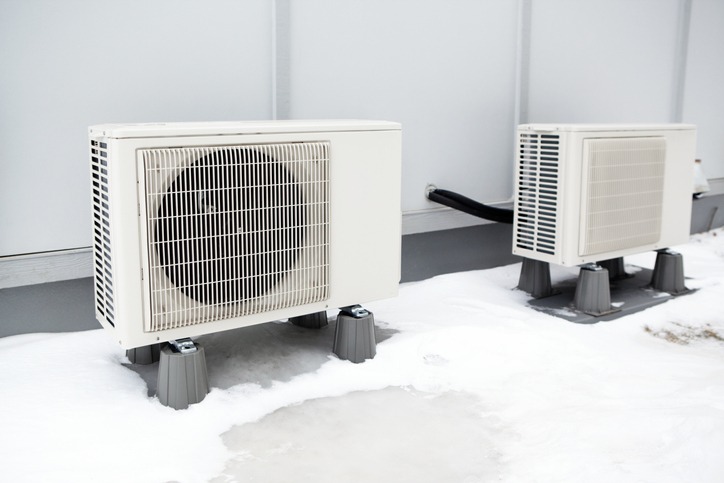Are you considering going duct-free to heat or cool your indoor spaces? Forced-air heating and cooling systems require ductwork to distribute the warmed or cooled air throughout your indoor rooms. However, some structures are not built with ductwork, and retrofitting ducts can be impractical, expensive, and time-consuming.
As such, many people seek alternatives to forced-air systems, which have reduced efficiency and are prone to leaking. Here, Spoor's Heating & Air Conditioning discusses mini split air conditioning systems, their benefits, and situations in which these systems might be your best option.
Contact our mini split air conditioner company today to schedule an appointment for HVAC services.

Choose A Ductless HVAC System
Ductless HVAC systems, also commonly known as ductless mini-split systems, are fantastically efficient and provide a constant level of in-room comfort. A ductless heat pump or air conditioning system usually comprises an indoor, wall-mounted unit combined with an outside compressor. These systems are often used in home additions, where a window AC unit or baseboard heating would be considered. However, unlike window HVAC units, ductless units need only a very small hole drilled into the wall, which makes them less vulnerable to leakage of air as well as security vulnerabilities. As a bonus, these systems are incredibly energy efficient.
Oftentimes, homes with ductwork based systems lose 25% or more of their cooled and heated energy. You end up with a more efficient system by removing the ducts or installing a ductless system from the outset. What's more, ductless heating and cooling systems have inverter-driven compressors, which slows down and speeds up based on the system's needs instead of shutting off as with traditional HVAC compressors. Systems that shut off entirely consume a lot of energy during the compressor start-up process. Certain ductless models can save you up to 30% on heating and cooling costs, and you might even qualify for a federal tax credit and local utility incentives (now that's a lot of savings!)
Ideal Situations For A Ductless HVAC
Depending on the exact construction of your indoor space, ductless systems can offer various benefits, even with whole-home heating and cooling. In certain circumstances, however, ductless systems have a clear advantage over forced-air heating and cooling units. New additions, such as garage apartments, extra rooms, and sunrooms, can benefit from ductless systems as the units are perfectly sized for these new spaces, so air won't be stolen from other rooms, and your HVAC system won't be overworked.
Larger homes can also benefit from these systems as, with a ductless system, you can choose to or not to heat or cool certain rooms within the household, saving you money. Mini-split systems can also help serve multiple needs under one roof. Does your family regularly fight over the thermostat? Ductless can help you create independent temperature zones in different rooms. These systems can also give extra cooling or heating power to rooms with specific heating or cooling requirements or issues.
